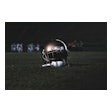Copyright 2018 Chattanooga Publishing Company
All Rights Reserved
Chattanooga Times Free Press (Tennessee)
It's football time in Tennessee. And Alabama. And Georgia. And everywhere else in the Southeastern Conference, including Columbia, South Carolina, and Columbia, Missouri, which somehow — despite a span of 870 miles that separates the two college towns — seemed close enough to place South Carolina's Gamecocks and Missouri's Tigers in the same Eastern Division.
Not that the SEC has ever been revered as an academics-first league.
Yet its football teams are a different matter, what with one conference member or another winning six of the past 10 national championships and finishing runner-up on four occasions, including twice to SEC brothers. Put another way, going back to the first BCS title game at the close of the 1998 season and continuing through the first four College Football Playoff championships, only seven times in the past 20 years has the SEC not competed in the national championship game.
No wonder the hype, if not downright hysteria, to continue that excellence will begin anew Tuesday in Atlanta with the start of another SEC Media Days, perhaps the second biggest college football media event out there after the national championship game.
So while the rock group Panic at the Disco may not have had the SEC's football chops in mind in its latest hit "Say Amen," at least two lines from the chorus — "Mama, can I get another amen? Oh, it's Saturday night" — surely will be in the minds and on the lips of SEC fans the nation over by the first Saturday of September.
Yet while we may all look forward to the pageantry of the sport on autumn weekends throughout the South, our football temples often holding 100,000 or more — the game's outcome only slightly less important (we hope) to many in the audience than faith and family — there is a growing dark side to the sport that probably won't draw much attention at the SEC media event.
That troublesome truth is the mounting evidence of brain trauma for players at all levels of football due to head hits. Though concussion protocol is now standard operating procedure from peewee football to the NFL, last month's news that former Washington State quarterback Tyler Hilsinki was found to have evidence of the degenerative brain disease chronic traumatic encephalopathy after the 21-year-old committed suicide last winter has only heightened concern for all who play the sport.
"I was at a Kids And Pros clinic at Baylor (School) last week," Dr. Derek Worley said of the clinics conducted throughout the South on proper tackling technique by former Atlanta Falcons linebacker Buddy Curry. "If there were 120 kids there, there were 100 parents and all of them wanted to know about CTE. I think there's starting to be a lot more pressure on coaches and athletes to know and follow the (concussion) rules."
The protocol always sounds tough. A doctor has to clear a player to return. There's supposed to be no meddling. Health and safety come first.
But when the Atlanta Journal-Constitution was working on an article about concussions last season, SEC members Auburn, Ole Miss, Mississippi State, LSU and Tennessee said they did not keep records of such injuries, and Alabama declined to participate over "privacy rules."
Anyone could understand a school choosing to protect a specific athlete's privacy. But failing to supply a general number for total concussions without further details? SEC football coaches probably know how many potato chips their star running back ate for a midnight snack, but they don't have a record of how many concussions their roster suffered?
Mama, can I get another ahem?
"To be sure, some coaches and athletes are resistant to it," said Worley, who is board certified in sports medicine and has previously worked with University of Arkansas athletics. "There are still some who look at this as part of the sport, just getting your bell rung. On the other side, I think you're starting to see far more athletes realize how serious this is. More and more people are becoming aware of CTE now."
Anyone who has read anything about the Hilsinki tragedy knows no one can say for certain that hits to the head caused the promising junior with several career starts to take his own life.
As his mother, Kym, told Sports Illustrated recently: "Did football kill Tyler? I don't think so. Did he get CTE from football? Probably. Was that the only thing that attributed to his death? I don't know."
We don't know everything. We know that doctors told the Hilsinki family that Tyler had the brain of a 65-year-old. We know at least six former NFL players who committed suicide — Terry Long, Andre Waters, Shane Dronett, Dave Duerson, Junior Seau and former Atlanta Falcon Ray Easterling — later were found to have suffered from CTE.
"The most good we can do is to teach kids to lead with their chest instead of their head when they go to make a tackle," Worley said. "Changing tackling techniques is a huge key. There will never be a helmet made that will make your child concussion proof."
And while no one can say for certain what caused Hilsinki to end his own life, Worley has seen 12-year-old kids who have had at least three concussions.
Asked what those parents have said after that third one, Worley replied, "They said they didn't want (their son) to play anymore."
For the future of football at all levels, even the seemingly unbreakable SEC, those who champion the sport should hope that parental concern such as that never becomes the rule rather than the exception.
Contact Mark Wiedmer at [email protected]
Read More of Today's AB Headlines
Subscribe to Our Daily E-Newsletter
Terms and Conditions Privacy Policy































